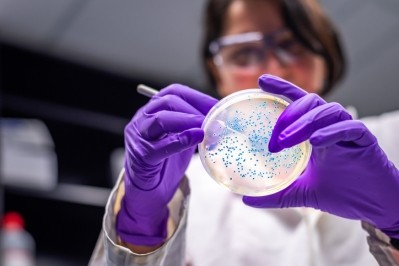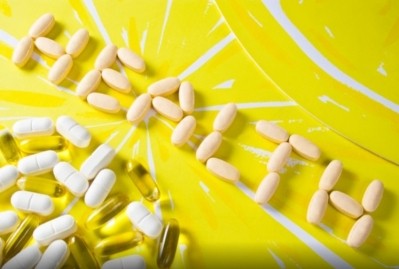Supplementary probiotic blend may play role in halting coronavirus development

Researchers administering a supplemental probiotic formulation to 70 patients, who had tested positive for COVID-19 found nearly all of them showed remission of diarrhoea, compared to less than half in the non-supplemented group.
In patients receiving his oral bacteriotherapy, the estimated risk of developing respiratory failure was eight-fold lower compared to the group which was not supplemented.
“Our preliminary results evidenced an improved survival rate and a lower risk of transfer to an intensive resuscitation for patients supplemented with the probiotic compared with those on standard treatment only,” says Dr Giancarlo Ceccarelli, specialist in infectious diseases at the university of Rome and one of the study investigators .
“The gut bacteria have a long-reaching immune impact on the pulmonary immune system. Our results stress the importance of the gut-lung axis in the control of the COVID-19 illness.
“Bacteriotherapy could represent an additional option for this severe disease. As a note of caution, I want to stress that our study results are preliminary and specific for this product.”
The study used SivoMixx 800, a probiotic formulation containing lactic acid bacterial strains and bifidobacteria at a concentration of 800 billion Colony Forming Units (CFU) per sachet.
Its makers, Ormendes a Swiss bio-tech company, said that the product is not intended to treat, prevent, or cure any disease.
Its formulation, however, may prove suitable in addressing the dysbiosis found in patients who have died from COVID-19 infection.
The sequencing of their microbiota revealed a significant decrease in bifidobacteria and lactobacilli, the main families of symbiotic bacteria, as well as an increase in opportunistic bacteria such as Corynebacterium or Ruthenibacterium.
The study highlights that intestinal dysbiosis has a long-reaching immune impact on the pulmonary immune system, and hence might be an additional risk for respiratory distress induced by COVID-19.
Previous studies have suggested some strains of lactobacilli and bifidobacteria have a protective role against influenza virus, rhinovirus, respiratory syncytial virus, adenovirus, and pneumovirus.
Study details
The study enrolled 70 patients positive for COVID-19, hospitalised between 9 March and 4 April, 2020.
These patients had a fever and required non-invasive oxygen therapy. In addition, 42 patients received hydroxychloroquine, antibiotics, and tocilizumab, alone or in combination.
A second group of 28 subjects received the same therapy added with oral bacteriotherapy, using the multistrain formulation.
This formulation contained, Streptococcus thermophilus DSM 32345, L.acidophilus DSM 32241, L. helveticus DSM 32242, L. paracasei DSM 32243, L. plantarum DSM 32244, L. brevis DSM 27961, B. lactis DSM 32246 and B. lactis DSM 32247 administered in three equal doses per day.
Within 72 hours, almost all bacteriotherapy patients showed remission of diarrhoea and other symptoms compared to less than half of the group who did not receive supplementation.
In patients treated with oral bacteriotherapy the estimated risk of developing respiratory failure was eight times lower than in the group that was not integrated.
Both the prevalence of ICU patients and mortality were higher among patients not treated with oral bacteriotherapy.
“We know that the entry points for the virus into the body are enzymes that are linked to intestinal cells,” the study says.
“Coronaviruses constantly change their binding patterns as they evolve, and the potential target in the lungs also varies, but not in the small intestine, where it remains constant.
“In the acute phase, only 10% of coronavirus disease 19 (COVID-19) patients present virus cDNA in the blood, but almost 50% of them excrete it in the stools,” the research team writes.
“The infectious form of the virus was even identified several times, suggesting that the orofecal route is a mode of contamination. The gut involvement might explain the wide variation in viral load from one test to another in the same person as if the virus were hiding there.”
Protective biological functions
In discussing the study results, the team hypothesized that in patients infected by COVID-19, a bacterial formulation with the “appropriate” biochemical and immunological profile might trigger several protective biological functions.
“The bacterial strains present in the product enhance the production of both the nuclear factor erythroid 2p45-related factor 2 (Nrf2) and its target Heme oxygenase-1 (HO-1),” the team discusses.
“These molecules exert antiviral activity through a reduction of oxidative stress. Nrf2 and HO-1 have significant antiviral activity against a wide variety of viruses, including Human immunodeficiency virus (HIV), influenza virus, respiratory syncytial virus, dengue virus, and Ebola virus among others.”
The team comment on the gut-lung axis’ role, highlighting the lymphatic system pathway, which forms a channel between the lungs and intestine, where bacteria can cross the intestinal barrier to reach the circulation and influence the pulmonary immune response.
“Intestinal metabolites significantly affect not only local intestinal immunity but also other organs through the lymphatic and circulatory system,” the team states.
“For example, short chain fatty acids (SCFA) produced primarily by bacterial fermentation of dietary fibre, act in the lungs as signalling to attenuate inflammatory and allergic responses.”
“I am very pleased that one of our promising formulations has been selected as part of this independent study,” adds Salvatore Orlando, CEO of Ormendes.
“It confirms the growing awareness by the scientific community of the key role of microbiota in addressing healthcare today.”
Source: Frontiers in Medicine
Published online: doi.org/10.3389/fmed.2020.00389
“Challenges in the Management of SARS-CoV2 Infection: The Role of Oral Bacteriotherapy as Complementary Therapeutic Strategy to Avoid the Progression of COVID-19.”
Authors: Gabriella d'Ettorre et al.















